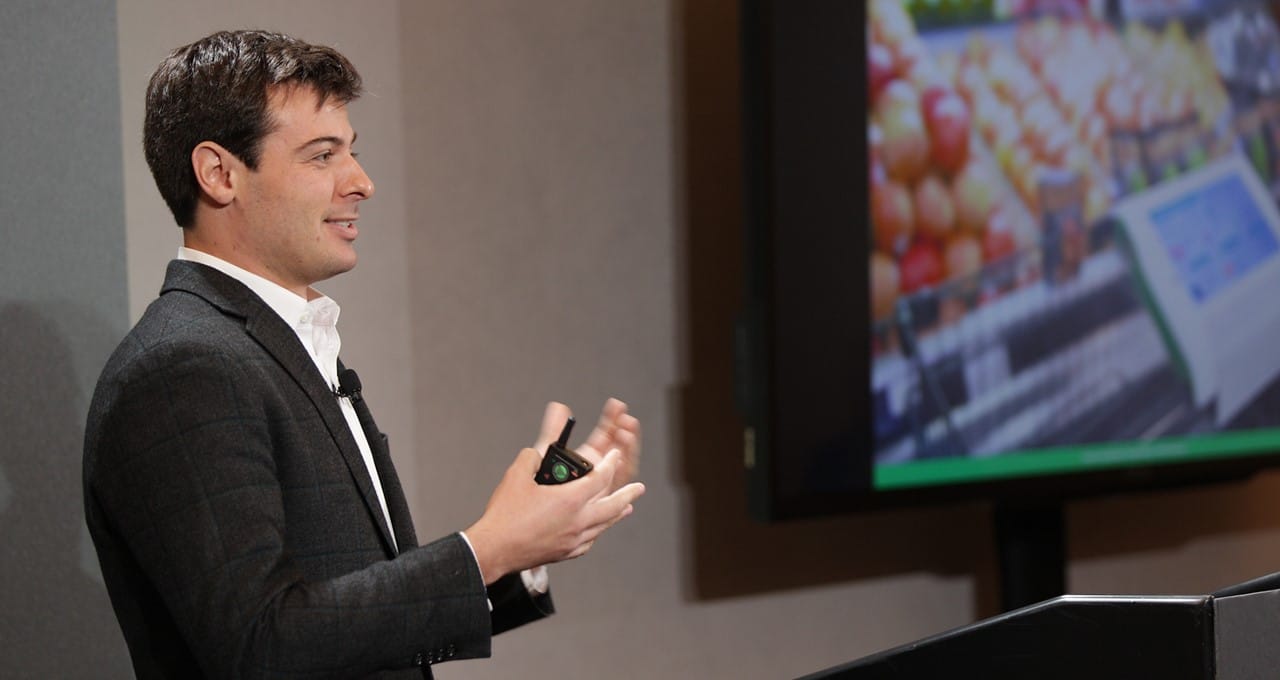Update: Our annual GPU Technology Conference will be virtual. Stay tuned for more details.
From smart store applications to supply chain optimization, next month’s GPU Technology Conference is putting the “AI” in retail.
A broad range of sessions, training, demos and networking opportunities will bring leaders from across the industry to GTC, taking place March 22-26 in San Jose. (Register for GTC today and get 20 percent off with discount code CMRT.)
And they’ll be discussing the hottest trends in retail. Among them:
- Smart Stores — including asset protection techniques to reduce shrinkage, store analytics to improve marketing and merchandising, and autonomous shopping with grab-and-go convenience.
- Operations — including accurate demand forecasting and efficient inventory management.
- Logistics and Supply Chain Optimization — including loading dock intelligence, optimizing truck routing, autonomous machines and adaptive conveyors, as well as conversational AI.
- 360-Degree View of the Customer — including analysis of customer behavior and buying preferences, along with recommendation engines to provide more relevant choices and boost sales.
Attendees can choose from more than 25 sessions focused on retail, along with training and workshops from the NVIDIA Deep Learning Institute. Among the demos in the exhibit hall will be those from Postmates and its socially aware delivery robot, Malong with its product recognition technology, and ModCam with its store analytics applications.
Here are a few can’t-miss retail-focused sessions to check out:
Alibaba’s Xiaowei Shen, senior engineer, and Pengfei Fan, technical expert, will present an NVIDIA GPU-based system to speed up recommendation system inference performance in Optimizing Recommendation System Inference Performance Based on GPUs (Session 21243).
Domino’s Zachary Fragoso, manager of Data Science and AI, will show how a model — trained on NVIDIA GPUs using more than 5,000 images of pizza — helped automate the job of labeling this unique dataset in How Domino’s Leverages AI for Inference (S22223).
Walmart Labs’ Stephen Guo, senior engineering manager, and Praveen Kumar Kanumala, staff software engineer, will discuss some of the scalability trade-offs and engineering challenges when designing a large-scale, deep personalization network for a low-latency consumer-facing applications in A Large-Scale Architecture for Contextual Personalized Grocery Basket Recommendations (S21619).
NVIDIA’s Azita Martin, general manager of AI for Retail at NVIDIA, will discuss the company’s application frameworks for data science, video analytics and conversational AI, and how data science teams can use these technologies to build AI applications to increase revenue and improve customer experiences in How AI is Reinventing Retail (S22200).
Dell EMC’s Bhavesh Patel, distinguished engineer, and Malong Technologies CEO and co-founder Matt Scott will discuss an efficient way to train deep neural networks on large-scale, weakly supervised data learned from regular retail customer asset-protection behaviors, without any expert annotation in Weakly Supervised Training to Achieve 99% Accuracy for Retail Asset Protection (S21427).
Everseen’s Bogdan Ciubotaru, CTO, and Alex Siskos, chief growth officer, will demonstrate how using their AI platform to digitize human behavior, virtually and in real time, can assist with point-of-sale transactions, sales, orders and returns in seenic.ai: The AI-Driven, Real-Time Deep Learning System for Retail Asset Protection (S22173).
Conversational AI and recommendation engines have major implications for the retail industry. Hear from Alibaba, ByteDance, NVIDIA, Pinterest, Square, Stanford and Walmart Labs on these topics. Check out all the retail sessions at GTC.
And to boost your knowledge of AI in retail, participate in some of the many interactive sessions led by NVIDIA experts:
Get to know the open-source RAPIDS project, which allows data scientists to accelerate their data science and data analytics applications from beginning to end. Learn how to detect anomalies within large datasets using supervised and unsupervised machine learning.
Find out how to utilize the CUDA platform in Python applications using Numba, a function compiler. By the end of the course, you’ll understand how to detect anomalies within large datasets.
Learn the basics of the TensorFlow platform in order to generate high-performance deep learning models.
Upon completion, you’ll know how to create AI-based video analytics applications using DeepStream.
